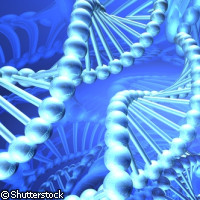Study links small stretch of DNA to wide range of disorders
An international team of researchers has linked errors in a small stretch of DNA to a wide range of developmental disorders in children. The findings highlight the complicated nature of the links between genes and disease. The work, which was partly financed by the EU, is published online in the New England Journal of Medicine (NEJM). It is well known that duplications and deletions of sections of DNA can cause health problems and make people more prone to certain diseases. In this latest study, the scientists analysed the role of a specific region of chromosome 1q21.1 in a variety of developmental disorders. They tested over 5,000 people with unexplained mental retardation, autism or other congenital abnormalities for errors in this region of the DNA. They also tested a control group of over 4,000 people from the general population. Their analyses identified a number of people in the first group who were either missing a section of DNA in the region under study, or who had a duplication of a section of the DNA. These individuals suffered from a variety of disorders, including mental retardation, growth problems, learning disabilities, seizures, autism, heart defects, other congenital abnormalities, cataracts, small head size, unusual facial features, hand deformities and skeletal problems. The severity of the symptoms also varied substantially: some patients were very severely affected, while others had only slight symptoms. Some of these people had inherited the mutation from a parent, while in others the mutation had arisen spontaneously. Interestingly, three members of the control group were also found to have duplications of the DNA in the region under investigation. Further health checks revealed that one of these people had mild cataracts and a heart defect that had not previously been detected. 'Our data show that 1q21.1 deletions are associated with a broad array of paediatric developmental abnormalities,' the researchers write, adding that the results also 'emphasise the importance of rare structural variants in human disease'. This is not the first time that 1q21.1 has been linked with health problems. Previous studies have found connections between deletions in 1q21.1 and schizophrenia and deformities in the reproductive tract. Together, these studies highlight the complexity of the links between genes and diseases; one mutation does not lead to one disease. This has important implications for genetic testing. 'Given the spectrum of possible outcomes associated with 1q21 rearrangements, such persons should be monitored in the long term for learning disabilities, autism, or schizophrenia or other neuropsychiatric disorders,' the researchers recommend. The wide range of symptoms resulting from mutations in this region poses a particular problem for prenatal genetic testing. 'Although the likelihood of an abnormal outcome is high in a person with a 1q21.1 rearrangement, current knowledge does not allow us to predict which abnormalities will occur in any given person,' the scientists write. The next challenge for researchers will be to attempt to identify the genetic and environmental factors which could explain the wide range of abnormalities seen in people with a 1q21.1 mutation. However, this will require studies involving an even larger number of patients. EU support for the study came from the 'Life sciences, genomics and biotechnology for health' Thematic area of the Sixth Framework Programme (FP6).



